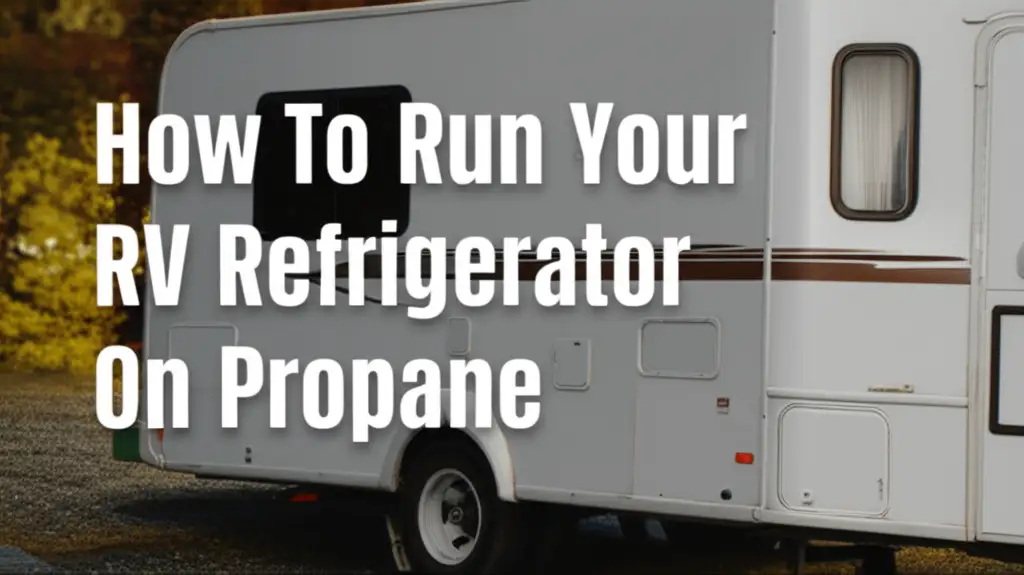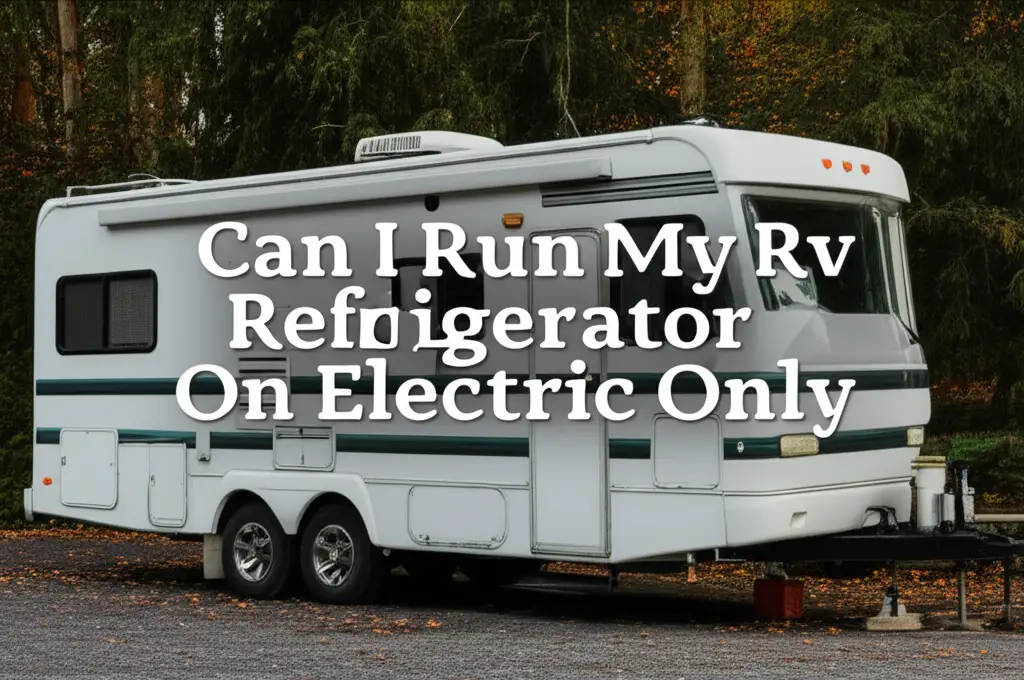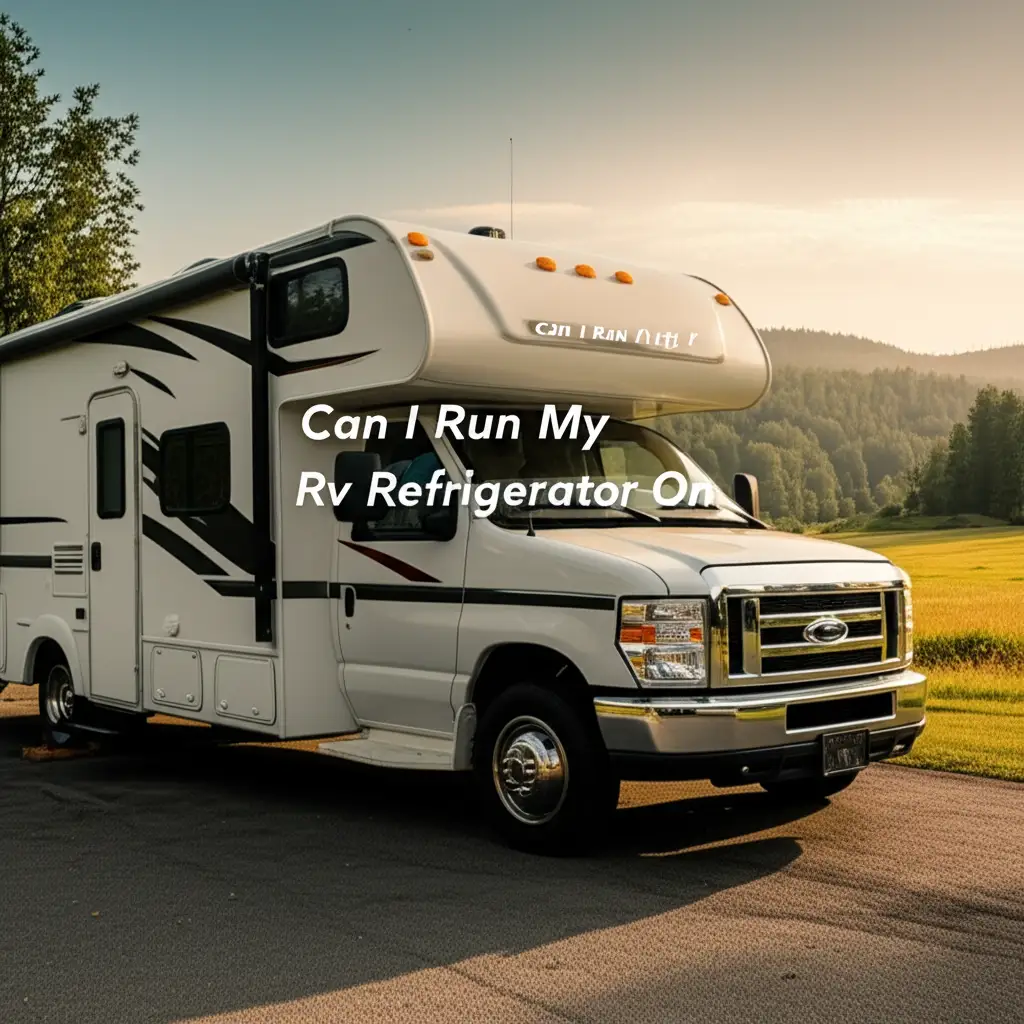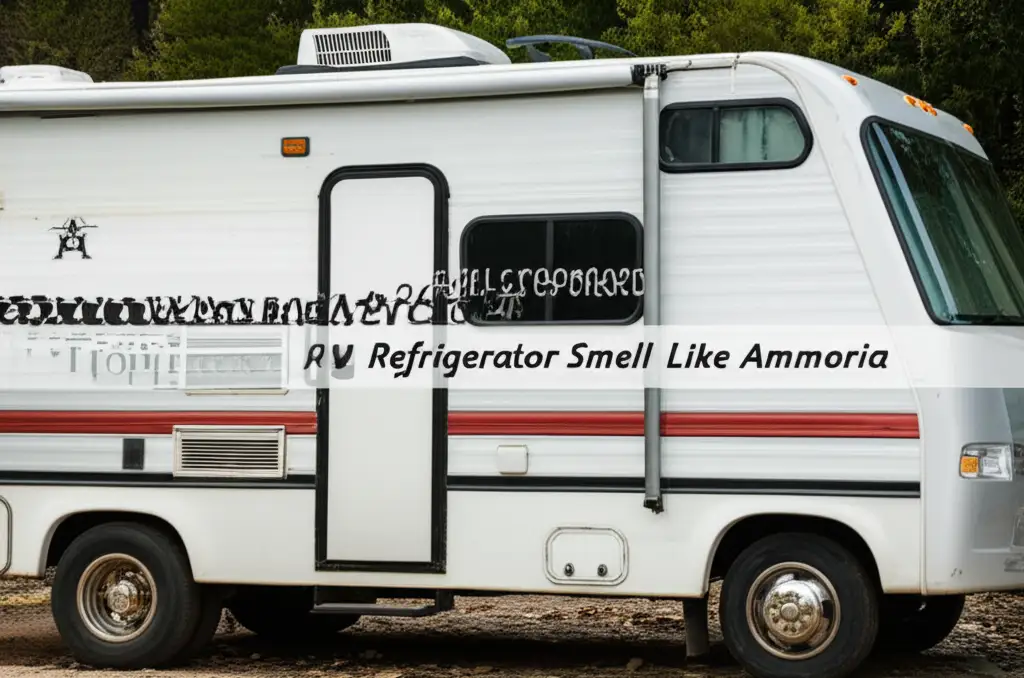· Kianna Connelly · RV Essentials · 17 min read
Can I Run My Rv Refrigerator While Driving
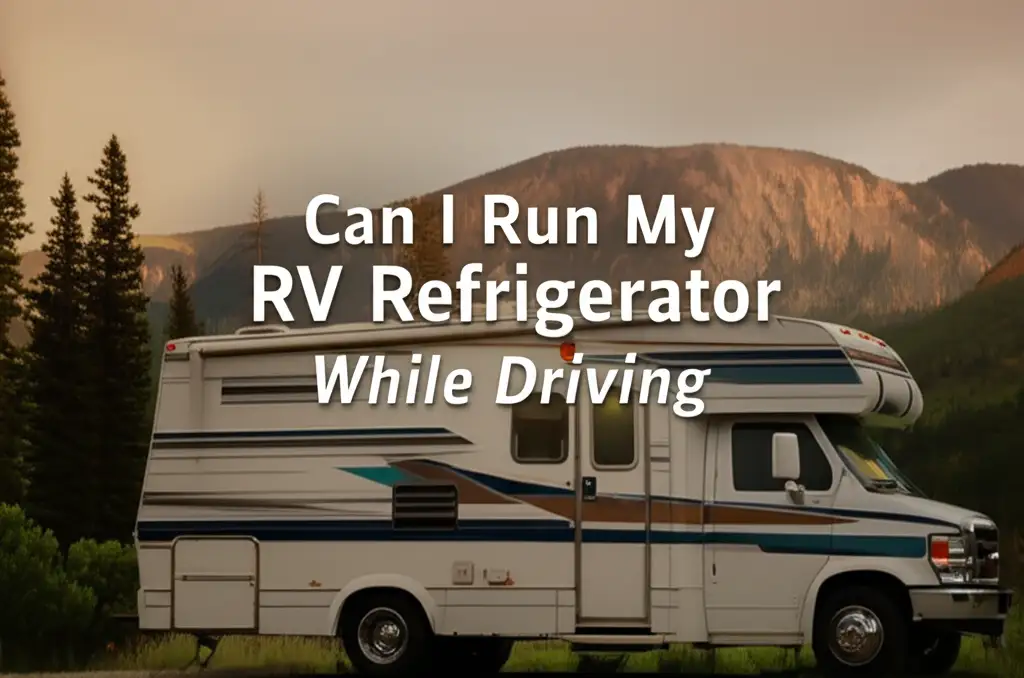
Running Your RV Refrigerator While Driving: What You Need to Know
Planning a road trip in your RV often brings up practical questions. One common question is: “Can I run my RV refrigerator while driving?” Keeping your food cold and fresh on the go is important. You want to make sure your RV fridge works correctly and safely throughout your journey.
Many RV owners wonder about the best way to power their refrigerator on the road. Different types of RV fridges use different power sources. Understanding these options helps you travel with peace of mind. This article explores how to run your RV refrigerator while driving. We will cover power types, safety tips, and common issues. My goal is to give you clear answers for your next adventure.
Takeaway
- Most RV refrigerators can run while driving using propane, 12V DC, or 110V AC power.
- Propane is a common choice but requires proper ventilation and safety checks.
- 12V DC power keeps compressor fridges working and absorption fridges in “auto” mode.
- 110V AC power needs an inverter or generator during travel.
- Pre-cooling your fridge and packing it well improves efficiency on the road.
Yes, you can absolutely run your RV refrigerator while driving. Modern RV refrigerators are designed to operate safely on the road. They can use various power sources like propane gas, 12-volt DC power from your RV’s battery, or 110-volt AC power via an inverter or generator. The best method depends on your refrigerator type and RV setup.
Understanding RV Refrigerator Types and Power Sources
RV refrigerators are different from your home fridge. They are built to handle movement and varied power sources. Knowing your fridge type helps you run it correctly. There are two main types of RV refrigerators.
First, we have absorption refrigerators. These are the most common in older RVs and many new ones. Absorption fridges do not use a compressor. Instead, they use a heating element to create a cooling cycle. This heating element can run on propane gas or 110-volt AC electricity. Many absorption fridges also have a 12-volt DC mode. This 12-volt mode typically only powers the control board and internal fan, not the main cooling element. The 12-volt current mostly supports auto-switching features. When driving, many people use propane for cooling or switch to auto-mode if 12V is available.
Second, there are compressor refrigerators. These are becoming more popular in newer RVs, especially those with robust battery and solar systems. Compressor fridges work much like your home refrigerator. They use a compressor to circulate refrigerant. These units primarily run on 12-volt DC power. Some models also have 110-volt AC capability when plugged into shore power. Compressor fridges are generally more efficient. They are less sensitive to leveling than absorption fridges. Understanding your fridge type is the first step to running it well while driving.
Powering Your RV Fridge: Options on the Go
When you are driving, your RV refrigerator needs a power source to stay cold. You have a few options depending on your fridge type and RV setup.
- Propane Gas: Absorption fridges can run on propane. This is a very common method for keeping food cold while traveling. Propane provides the heat needed for the cooling cycle.
- 12-Volt DC Power: This power comes from your RV’s house batteries. All compressor fridges use 12V DC as their primary power source. Some absorption fridges use 12V DC to power their control board or a small fan. This helps with the auto-switching function.
- 110-Volt AC Power: This is like household power. You can get 110V AC from shore power when parked. While driving, you need an inverter or a generator to supply this power. An inverter converts 12V DC from your batteries into 110V AC. A generator produces 110V AC directly.
Each power option has its own benefits and considerations. Choosing the right one depends on your trip length and RV features.
Running Your RV Refrigerator on Propane While Driving
Running your RV refrigerator on propane while driving is a common practice for many RV owners. Absorption refrigerators use propane to generate heat. This heat then starts the cooling process. It works very efficiently and does not drain your RV’s house batteries. This makes it a popular choice for long travel days.
Many RVs come equipped with a two-way or three-way refrigerator. A two-way fridge runs on either propane or 110V AC power. A three-way fridge adds 12V DC power as an option, though this 12V is often just for the control board. When you select the “auto” mode on your RV fridge, it typically tries to use 110V AC power first. If 110V is not available, it switches to propane automatically. This automatic switching is convenient when you are driving and then stopping.
Safety Measures for Propane Operation on the Road
While running your RV fridge on propane is common, safety is very important. Always ensure your propane system is in good condition. Check for leaks regularly. Make sure the exterior refrigerator vents are clear. Proper ventilation helps prevent any propane gas buildup.
Many RVers safely drive with their propane fridge running. However, some areas may have restrictions. For example, some tunnels or ferries require you to turn off propane tanks. Always check local regulations before entering such areas. It is also wise to turn off propane when fueling your RV. This minimizes risk near a flammable fuel source. If you want to know more about this topic, you can read our article about running an RV refrigerator on propane while driving.
Using 12V DC Power for Your RV Fridge on the Road
Many RV refrigerators can use 12-volt DC power, especially newer compressor models. This power comes directly from your RV’s house batteries. For compressor refrigerators, 12V DC is their primary power source. They are designed to run efficiently on it. These fridges are great for boondocking or long travel days. They pull power directly from your battery bank.
For absorption refrigerators, the 12V DC option is usually different. On these fridges, the 12V typically powers the control board and a small internal fan. It does not power the main heating element for cooling. The 12V mode on an absorption fridge is sometimes called “drive mode.” It keeps the fridge circuit active. It might also help switch to propane or AC when available. Running the main cooling element on 12V DC in an absorption fridge would drain your batteries extremely fast.
Battery Drain and Solutions
Using 12V DC power for a compressor fridge while driving is very effective. However, it still uses battery power. Your RV’s engine alternator usually charges your house batteries as you drive. This helps offset the power consumption. On shorter trips, your batteries might keep up. For longer trips, you need to consider your battery capacity.
If you have a large compressor fridge, it might consume a lot of power. You might need a larger battery bank. Lithium-ion batteries are a popular upgrade for RVers who rely on 12V power. They hold more usable power and charge faster. Solar panels on your RV roof can also supplement battery charging. This creates a good balance for running your 12V fridge. Understanding your RV’s electrical system is key here. Our guide on running an RV refrigerator on electric only offers more insights into electric power options.
Keeping Your RV Refrigerator Cold with 110V AC Power While Traveling
Running your RV refrigerator on 110-volt AC power while driving is another option. This is the same type of electricity you have at home. Your RV fridge uses 110V AC when plugged into shore power at a campsite. But what about when you’re on the move? You will need a way to generate or convert 12V DC battery power into 110V AC power.
The most common ways to get 110V AC while driving are using an inverter or a generator. An inverter takes the 12-volt DC power from your RV’s house batteries and converts it into 110-volt AC power. This allows your RV fridge to operate as if it were plugged into shore power. A pure sine wave inverter is usually recommended for sensitive electronics and appliances like refrigerators. They provide cleaner power.
Inverters vs. Generators for On-the-Road AC Power
Choosing between an inverter and a generator depends on your RV setup and needs.
Inverter:
- Pros: Quiet operation, no fuel needed beyond what’s in your batteries, automatic power supply if wired correctly. It’s great for discrete power use.
- Cons: Drains batteries if not replenished by the alternator or solar, initial cost of inverter and potentially larger batteries. It is essential to match inverter size to appliance needs.
- An inverter is an excellent choice for efficient power use.
Generator:
- Pros: Provides a lot of power, can run multiple appliances, recharges batteries quickly. Generators are good for heavy power users.
- Cons: Noisy, requires fuel (gasoline or propane), maintenance, can be restricted in some areas. They also produce exhaust fumes.
- A generator gives you maximum power flexibility.
Some RVs come with built-in generators. Others require a portable unit. If your RV fridge is an absorption type, running it on 110V AC via an inverter or generator is very efficient for cooling. If you have a compressor fridge, it primarily uses 12V DC. However, it will automatically switch to 110V AC if available and usually more efficiently. For more details on this, our article Can you run an RV refrigerator on 110 provides additional insights. Also, if you are curious about using solar power, check out Can I Run My RV Refrigerator on Solar Power.
Tips for Optimal RV Refrigerator Performance While Driving
Keeping your RV refrigerator running efficiently on the road involves more than just selecting a power source. A few simple steps can significantly improve its performance. These tips help ensure your food stays cold and safe throughout your journey. You want your fridge to work its best, no matter how long the drive.
Pre-Cooling Your RV Fridge
Always pre-cool your RV refrigerator before you start driving. Turn it on at least 24 hours before your trip. Plug it into shore power or run it on propane. This allows the fridge to reach its target temperature before you load food. Loading warm food into a warm fridge makes it work harder. It also takes a long time to cool down. A pre-cooled fridge will maintain temperature better during transit. It requires less energy to stay cold. This step is crucial for food safety.
Proper Packing and Loading
How you pack your RV fridge also matters. Do not overpack it. Air needs to circulate inside the fridge for even cooling. Leave some space between items. Use shelves and bins to organize food. Keep the door closed as much as possible. Each time you open the door, cold air escapes. This makes the fridge work harder to recover the temperature. Consider using refrigerator bars or tension rods. These prevent items from shifting and falling out during bumps in the road.
Monitoring and Maintenance
Regular monitoring helps you know if your fridge is working well. A small RV thermometer inside the fridge and freezer is a good idea. Check it periodically. This tells you if the temperature is stable. Make sure your RV’s battery system is healthy. Good battery voltage is important, especially for 12V compressor fridges. Clean the condenser coils or vents on your absorption fridge regularly. Dirt and dust can reduce efficiency.
It is also vital to ensure your RV refrigerator is level when parked. While it works fine slightly off-level when driving, absorption fridges need to be fairly level when stationary for long periods. This allows the cooling chemicals to flow correctly. If you’re wondering about this, our article Does an RV Refrigerator Need to Be Level provides more specific details. By following these tips, your RV fridge will keep your food fresh, ensuring you have a great trip. For more tips on maintaining cold temperatures, see How to Keep Your RV Refrigerator Cold While Traveling.
Common Issues and Troubleshooting for RV Fridges on the Go
Even with careful planning, your RV refrigerator might sometimes have issues while you are driving. Knowing common problems and basic troubleshooting steps can save your food and your trip. Most problems relate to power, airflow, or leveling. I will share some common issues I have encountered or heard about from other RVers.
Refrigerator Not Getting Cold Enough
This is a common complaint. If your RV fridge is running but not cooling, check a few things. First, verify the power source. Is it getting propane? Is your 12V system working? Is the inverter on if you are using 110V? Sometimes, the fridge might accidentally switch modes. For absorption fridges, ensure proper ventilation. The outside vents must be clear. Dirt or debris can block airflow, making the fridge less efficient. Also, check if the fridge fan is working. Sometimes, a fan issue can prevent cooling. Our article Why is my RV Refrigerator not getting cold provides a deeper dive into this. If your freezer works but the fridge section does not, you might find answers in our article Why is my RV Refrigerator not getting cold but freezer is.
Intermittent Cooling or Power Loss
Sometimes, an RV fridge might cool fine and then stop. This can point to an unstable power supply. If you are using propane, check your gas supply and ensure the igniter is working. If on 12V, verify your house batteries are charged and the wiring is secure. Loose connections can cause intermittent power. If using an inverter, ensure it is sized correctly for the fridge. Overloaded inverters can shut down.
Absorption fridges are sensitive to being level when parked. While driving, minor inclines are usually fine. But if you stop for a long break on a very unlevel spot, this could impact cooling when you restart. For information specific to propane cooling issues, refer to Why is my RV refrigerator not cooling on propane.
Fan Issues
Many RV refrigerators, especially absorption models, have a fan to help dissipate heat. If this fan stops working or runs erratically, it can affect cooling. Listen for the fan running. If you hear unusual noises or no fan at all, it might be a fan problem. Sometimes, the fan goes on and off, which can be normal cycling, but excessive on/off might indicate an issue. Our article Why does my RV Refrigerator fan go on and off offers specific troubleshooting steps for fan-related issues. If your fridge is running but just not cooling, check out Why is my RV Refrigerator running but not cooling. Knowing these simple troubleshooting steps can help you keep your food fresh during your travels.
Safety Considerations When Running Your RV Refrigerator
Safety is paramount when operating any appliance in your RV, especially while driving. Running your RV refrigerator on the road involves specific safety considerations. These ensure both your well-being and the longevity of your RV systems. I always prioritize safety checks before hitting the road.
Propane Safety While Driving
If you choose to run your absorption refrigerator on propane, be extra vigilant about safety. Propane is highly flammable.
- Turn off propane at fueling stations: This is a crucial rule. The risk of a spark igniting propane fumes is very low, but it is not zero. Better to be safe than sorry. Always turn off your propane tanks before entering a gas station.
- Be aware of tunnels and ferries: Many tunnels, bridges, and ferry services have regulations requiring all propane tanks to be shut off. Look for signs and follow these rules strictly.
- Check for leaks: Before any long trip, or if you smell gas, perform a simple leak test. You can use a soapy water solution on connections. Bubbles indicate a leak. Get professional help if you find any leaks.
- Ensure proper ventilation: The refrigerator vents on the outside of your RV must be clear. This allows heat and any potential gas fumes to escape. Blocked vents can lead to inefficient cooling and a safety hazard.
Electrical System Safety
If you use 12V DC or 110V AC power, focus on your RV’s electrical system health.
- Battery health: Your house batteries are vital for 12V fridge operation and for powering the inverter (if used). Ensure your batteries are in good condition. Check water levels in lead-acid batteries. Old or weak batteries can lead to fridge performance issues.
- Inverter sizing: If you install an inverter, make sure it is correctly sized for your refrigerator’s power draw. An undersized inverter can overheat or trip breakers.
- Wiring integrity: Regularly inspect your RV’s wiring. Look for any frayed wires or loose connections. Loose connections can generate heat and cause fires.
- Overload protection: Ensure your RV’s electrical system has appropriate fuses and circuit breakers. These devices protect against overloads and short circuits.
By adhering to these safety guidelines, you can enjoy the convenience of a cold RV refrigerator without unnecessary risks. A little bit of proactive maintenance and awareness goes a long way in RV travel.
FAQ Section
Is it safe to drive with the RV fridge on propane?
Yes, it is generally safe to drive with your RV refrigerator on propane. RV appliances are designed for this. However, always turn off propane at fueling stations and when passing through tunnels or on ferries that require it. Ensure good ventilation around the fridge and check for leaks periodically.
How long can an RV fridge run on 12V while driving?
A 12V compressor RV fridge can run as long as your house batteries receive charge from your RV’s alternator or solar panels while driving. For absorption fridges, the 12V mode typically only powers the control board and fan, not the cooling, so it uses minimal battery power. If your alternator or solar system cannot keep up, your batteries will eventually drain.
Do I need to level my RV fridge when parked for a short time?
Absorption RV refrigerators need to be fairly level to operate efficiently. A slight incline (a few degrees) is usually fine, especially for short stops. For longer parking periods (more than an hour) or overnight, it is best to level your RV. Compressor fridges are much less sensitive to leveling.
What happens if my RV fridge stops cooling while driving?
If your RV fridge stops cooling, first check its power source. If on propane, verify the gas is on and tanks are not empty. If electric, check for tripped breakers, blown fuses, or low battery voltage. Also, ensure external vents are clear. Pre-cooling and proper packing can help maintain temperature if cooling temporarily stops.
Can I run my RV fridge while parked overnight without hookups?
Yes, you can run your RV fridge overnight without hookups. If it is an absorption fridge, it will typically run on propane. If it is a 12V compressor fridge, it will run off your house batteries. Ensure your propane tanks have enough gas, or your batteries have sufficient charge for the night’s consumption, possibly supplemented by solar.
Conclusion
So, can you run your RV refrigerator while driving? The clear answer is yes, you can. Modern RV refrigerators are built for this purpose. They offer convenient ways to keep your food and drinks cold throughout your travels. Understanding the different power options is key. You can choose between propane, 12-volt DC power, or 110-volt AC power via an inverter or generator. Each option has unique benefits and considerations for your RV setup.
Remember to prioritize safety, especially when using propane. Always perform routine checks and be aware of regulations in different areas. Pre-cooling your fridge, packing it wisely, and knowing basic troubleshooting steps will also greatly enhance your travel experience. By following these guidelines, you ensure your RV refrigerator performs optimally on the road. Enjoy your next adventure with a well-stocked and perfectly chilled RV fridge! Start planning your next trip today, knowing your mobile kitchen will be ready for anything.
- RV Refrigerator
- RV Driving
- RV Travel
- RV Appliances
- Propane RV Refrigerator
- 12V RV Fridge
- RV Power


